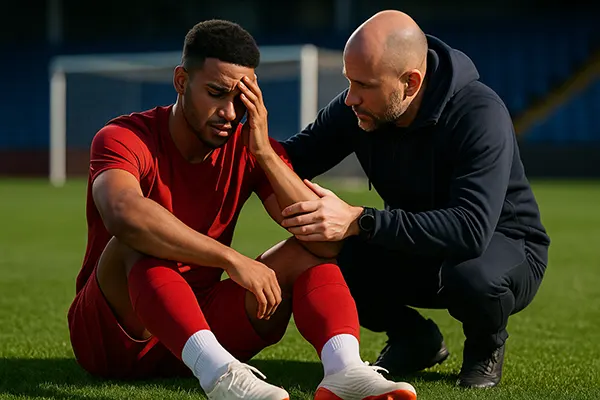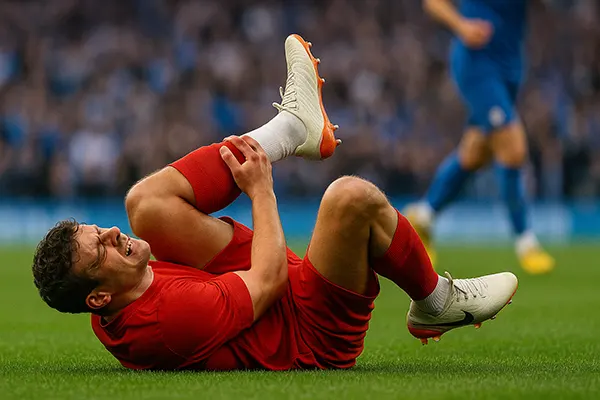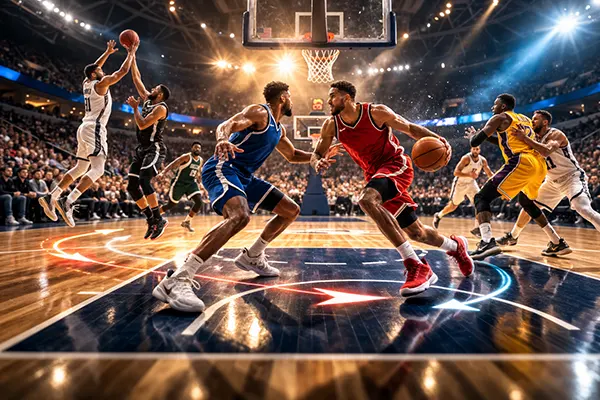Football and Mental Health: How Clubs Support Players in 2025

In 2025, the conversation around mental health in football has evolved from taboo to top priority. High-profile athletes like Trent Alexander-Arnold have openly discussed their psychological struggles, inspiring clubs and leagues to invest in mental wellness infrastructure. Beyond physical training and tactical preparation, the focus is now on emotional resilience, with dedicated programmes emerging across the Premier League and La Liga to address players’ mental wellbeing at all levels of the game.
Premier League and La Liga: Mental Health Support in Action
Top European football clubs are pioneering mental health support through comprehensive programmes involving clinical psychologists, wellness coaches, and peer-support systems. In England, Manchester City has launched a confidential helpline accessible 24/7, staffed by licensed therapists and former players trained in mental health first aid. Similarly, Arsenal introduced weekly group sessions focused on managing stress and performance anxiety under pressure.
In Spain, La Liga has mandated each first-division club to employ at least one full-time sports psychologist. FC Barcelona’s “Mentally Fit” initiative blends mindfulness with biofeedback tools, helping players manage high-intensity match environments. Atlético Madrid, on the other hand, collaborates with Instituto de Psicología Deportiva to provide personalised counselling for players at all levels, from the academy to the first team.
These proactive efforts signal a shift in football culture, one that embraces vulnerability and humanises players beyond their athletic roles. Club support is not only protective but also performance-enhancing, with studies showing improvements in focus, confidence, and team cohesion when mental health is prioritised.
Challenges in Building a Culture of Openness
Despite improvements, stigma remains a barrier, especially among male players raised in hyper-competitive, emotionally restrictive environments. Many still view admitting to psychological stress as a sign of weakness, risking reputation or selection. Changing this mindset requires long-term cultural work, peer advocacy, and sustained club support.
Initiatives like “Heads Up” in the UK, backed by Prince William, have helped normalise the conversation. The Premier League also integrates mental health awareness into youth training curriculums, emphasising emotional literacy from an early stage. In Spain, Real Sociedad’s captain Mikel Oyarzabal has become a vocal advocate for mental wellbeing, creating space for honest discussions among teammates.
The journey to destigmatise mental health in football is ongoing. But with each season, more players and staff step forward, reshaping locker-room norms and reinforcing the idea that mental strength includes recognising when to seek help.
Players Speaking Out: Personal Stories That Shift Perceptions
Public disclosures have been instrumental in pushing the issue into mainstream sports discourse. Trent Alexander-Arnold’s March 2025 interview with The Guardian candidly addressed his battle with burnout and identity crisis during a string of poor performances. He credited Liverpool’s mental resilience programme and private therapy as turning points in regaining both confidence and peace of mind.
Elsewhere, former Spanish international Isco recently opened up about depression following his move away from Real Madrid, explaining how pressure and isolation contributed to a mental health breakdown. His story received widespread support, prompting La Liga to expand mental health screenings during mid-season check-ins.
These testimonies are more than confessions—they are acts of leadership. By sharing their experiences, elite athletes help dismantle toxic norms, giving permission for others to express vulnerability without fear of judgement or professional fallout.
The Role of Social Media in Normalising Discourse
Platforms like Instagram and X (formerly Twitter) have become powerful outlets for players to express emotional highs and lows directly to their followers. This direct communication builds authenticity and allows for open dialogue between fans and athletes.
Clubs increasingly encourage players to use these platforms responsibly, offering workshops on digital communication and mental health boundaries. In some cases, they’ve partnered with mental health charities to share resources and guidance during Mental Health Awareness Week.
These digital narratives reach millions, especially younger fans, amplifying messages of mental resilience and showing that emotional struggles don’t discriminate—even among top-tier professionals.

Building Resilience in Young Footballers
For the next generation of players, cultivating mental fortitude is as essential as physical conditioning. Recognising this, academies across Europe have begun integrating mental health education into their development pathways. Clubs like Southampton FC and Villarreal CF now offer psychological skill-building sessions that cover goal-setting, emotional regulation, and handling social media pressure.
These efforts aim to prevent burnout, a growing issue among teens competing in high-stakes environments. By equipping young athletes with coping mechanisms early, clubs hope to foster longevity and enjoyment in their careers, rather than fear or performance anxiety.
Equally important is the role of guardians and coaches. Programmes like “Mind the Game” in the UK educate adults in recognising signs of distress and responding with empathy rather than criticism. When trusted adults champion emotional awareness, young players feel safe enough to seek help when needed.
Practical Tips for Youth Players in 2025
Stay connected with people outside football—friends, family, or mentors—who provide emotional grounding and perspective beyond wins or losses. Emotional support from non-sport environments builds resilience during challenging times.
Keep a journal to track emotions, energy levels, and triggers. Reflecting on thoughts helps young players develop emotional intelligence and spot patterns that affect their performance or mood.
Don’t be afraid to talk. Whether it’s with a coach, teammate, or school counsellor, sharing what’s going on internally is a strength—not a flaw. Silence can isolate, but speaking up invites support and solutions.






